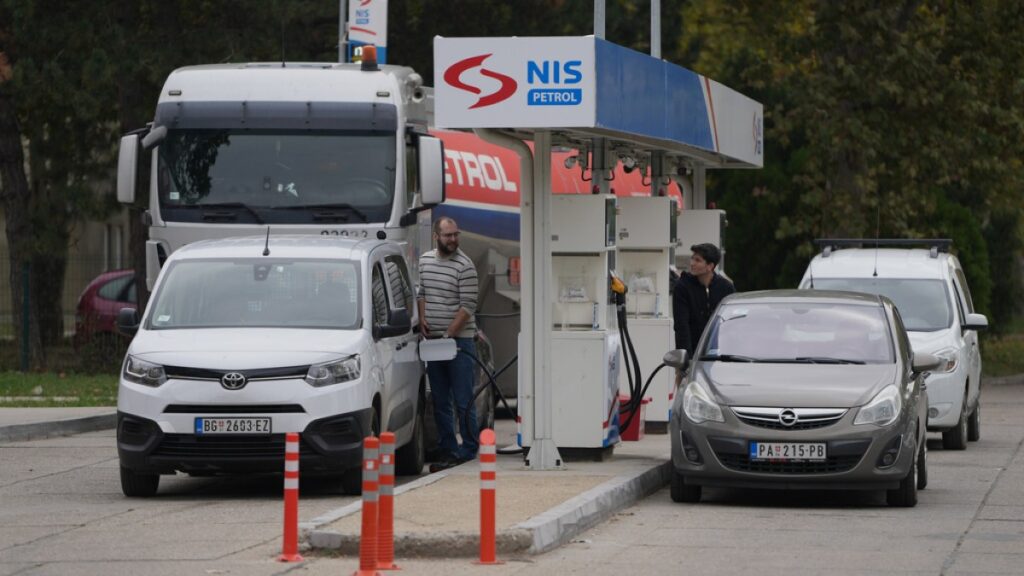Sanctions imposed on NIS in January as part of its crackdown on the Russian energy sector go into force.
Published On 9 Oct 2025
US sanctions on Serbia’s majority-Russian-owned Petroleum Industry of Serbia (NIS) oil company, which operates the country’s sole refinery, have taken effect after months of delay.
After the sanctions came into force on Thursday morning, NIS said it “had not yet been granted an extension of the special licence from the United States Department of the Treasury”.
Recommended Stories
list of 4 itemsend of list
“NIS is working to overcome this situation,” it said in a statement, adding it would work with the US Treasury to seek its removal from the sanctions list.
Serbia almost entirely depends on Russian gas and oil supplies, which it receives mainly through pipelines in Croatia and other neighbouring states.
The fuels are then distributed by NIS, which is majority-owned by Russia’s state oil monopoly Gazprom Neft.
The US sanctioned NIS in January as part of its crackdown on the Russian energy sector following Moscow’s invasion of Ukraine in 2022.
The company said it has “sufficient crude oil reserves for processing at this time, while petrol stations are fully supplied with all types of petroleum products”.
President Aleksandar Vucic warned on Monday that the sanctions would have a serious impact and hit the banking sector first.
“There is no bank in the world that would risk violating US sanctions,” Vucic said.
NIS confirmed it expects foreign payment cards to “cease functioning”, with petrol stations accepting only Serbia’s domestic card or cash.
Although formally seeking European Union membership, Serbia has refused to join Western sanctions against Russia over its invasion of Ukraine, in part because of the crucial Russian gas deliveries.
The pro-Russian Vucic is facing one of the biggest threats to more than a decade of his rule, demanding he resign. Protests have been held by university students and others following the collapse last year of a concrete canopy at a railway station in the country’s north that killed 16 people.
‘Sales are operating as normal’
A central NIS station in Belgrade was quiet on Thursday, as the head of the company’s consumer arm told the state broadcaster that there was no need for motorists to panic buy.
“Our sales are operating as normal. There are no restrictions when it comes to the quantities customers can purchase,” Bojana Radojevic, NIS retail director, said.
Croatian pipeline operator Janaf, which supplies oil to NIS, said it could take an 18-million-euro ($21m) hit this year.
“The expectation that the US will lift the sanctions is irrelevant. They [NIS] put themselves in such a position, and they have to resolve it,” Janaf chairman Stjepan Adanic told Croatian broadcaster HRT.
Vucic said earlier that talks were under way on the company’s future, including the possible divestment of Russian shareholders.
Despite Western pressure, Serbia has maintained close ties with Moscow and refused to impose sanctions, even as it pursues EU membership.
It is heavily dependent on Russian gas. A supply contract signed in spring 2022 is expiring, and talks are under way for a new deal.
NIS is 45 percent owned by Gazprom Neft.
Its parent company, Gazprom, transferred its 11 percent stake last month to Intelligence, a Saint Petersburg-based firm also linked to the Russian energy giant.
The Serbian state owns nearly 30 percent, and the remainder is held by minority shareholders.
https://www.aljazeera.com/news/2025/10/9/us-sanctions-serbias-main-oil-supplier-controlled-by-russia?traffic_source=rss


